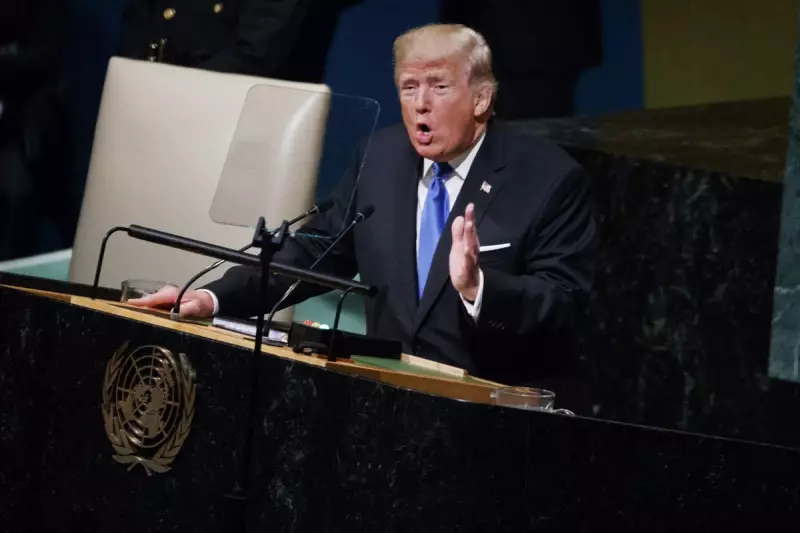
In a dramatic return to the kind of rhetoric that defined his presidency, Donald Trump delivered a scathing critique of current American foreign policy during a high-profile event in New York. The former president took direct aim at two of the world's most pressing conflicts, framing US involvement through a lens of national self-interest.
Aid to Ukraine: A 'Bad Deal' for America
Trump launched a forceful assault on the substantial financial and military support the United States has provided to Ukraine in its defence against Russian aggression. He characterised the ongoing aid packages as a disastrous negotiation, claiming other nations were not contributing their fair share.
'We are giving away so much money, and it's a one-way street,' Trump asserted, suggesting that European allies were taking advantage of American generosity. His comments signal a potential sharp reversal in US support for Kyiv should he win a second term in the White House.
Gaza Conflict: Accusations of 'Persecuting' Israel
Shifting focus to the Middle East, the former commander-in-chief accused the Biden administration of unfairly targeting Israel over its military operations in Gaza. He portrayed the current policy as a betrayal of a key ally, vehemently defending Israel's right to conduct its campaign.
Trump's remarks align closely with the views of Israel's right-wing government and stand in stark contrast to the growing international concern, including from some US officials, over the humanitarian crisis and the rising Palestinian death toll.
A Preview of a Potential Second Term
The speech, delivered to a supportive audience, is being widely interpreted as a clear preview of the foreign policy approach a second Trump administration would adopt. It underscores a continued commitment to an 'America First' doctrine, prioritising perceived national interests over multilateral alliances and international consensus.
This address solidifies Trump's position on the global stage as a Republican figurehead, offering a polarising alternative to the current administration's strategies and setting the stage for a foreign policy debate that will be central to the 2024 presidential election.






